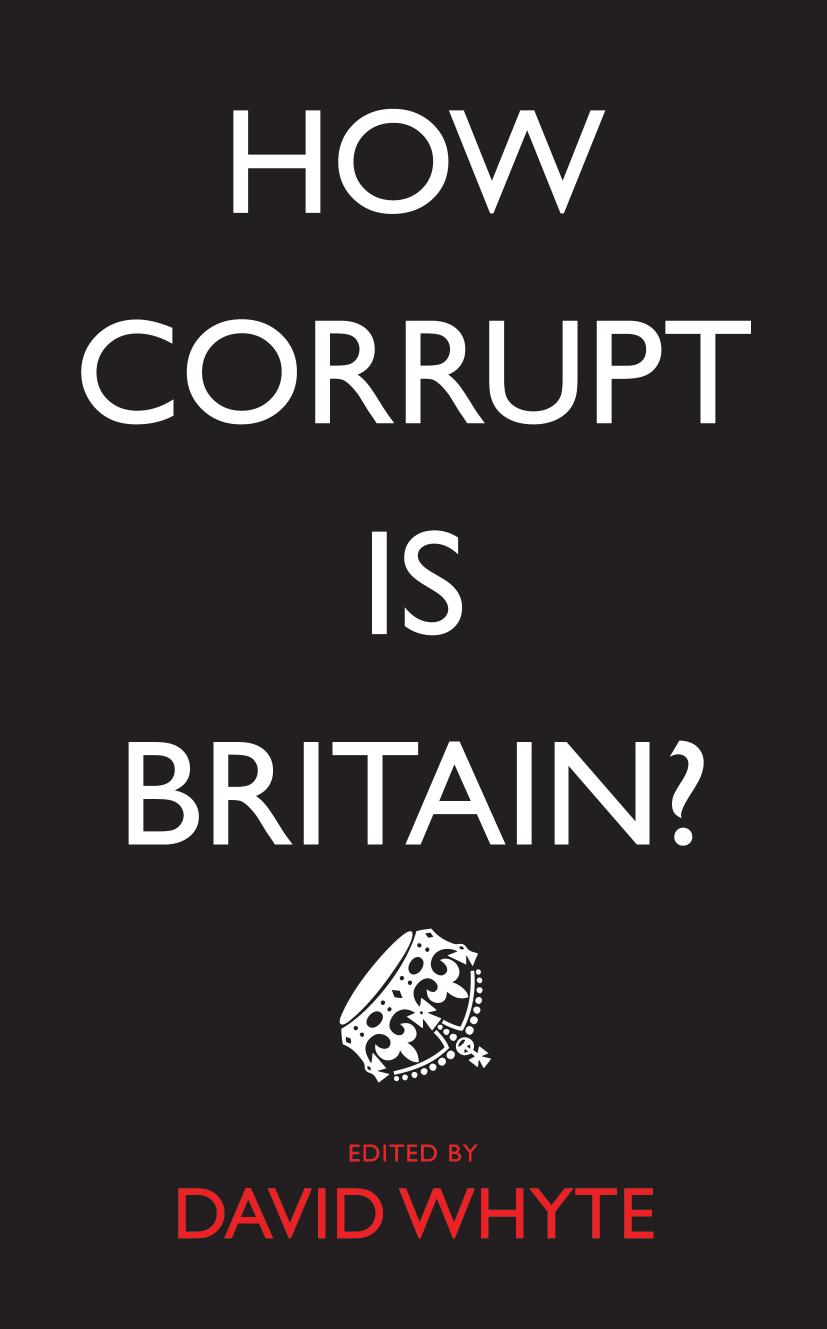How Corrupt Is Britain? by David Whyte

Author:David Whyte [Whyte, David]
Language: eng
Format: epub, pdf
Tags: Politics, United Kingdom, 21st Century, Corruption, Business, Neoliberalism, Capitalism
ISBN: 9780745335292
Google: 71XKoAEACAAJ
Amazon: 0745335292
Goodreads: 23258348
Publisher: Pluto Press
Published: 2015-05-14T23:00:00+00:00
The Independent Police Complaints Commission
The IPCC was established under New Labour in the aftermath of the Macpherson Inquiry, which found existing investigative procedures to be wholly inadequate. Established by the Police Reform Act 2002, the IPCC is tasked with investigating the most serious complaints and allegations of misconduct against the police, as well as handling appeals from people who are dissatisfied with the way the police have dealt with their complaint. While the statutory purpose of the IPCC is to increase public confidence in the police complaints system, the organisation has, since its inception, failed to secure public legitimacy. Much of this scepticism reflects doubts that the IPCC constitutes a genuinely âindependentâ investigative body. According to the IPCCâs latest annual report, seven out of eight senior investigators are former police officers, as are nine out of twenty deputy senior investigators and over a quarter of investigators.11
Moreover, the IPCC only investigates a small proportion of complaints against the police â the overwhelming majority are investigated by each police forceâs own professional standards department. Some 130 independent investigations were completed by the IPCC between 2011 and 2012.12 In contrast, 27,157 complaints were finalised by local investigation during the same period, of which only 12 per cent were upheld.13 The IPCCâs record of dealing with corruption complaints is particularly discouraging. Of the 837 corruption cases referred to the IPCC between 2008 and 2011, only 3 per cent were independently investigated by the Commission, and 12 per cent subject to a âmanagedâ investigation.14 The majority of complaints concerned allegations of perverting the course of justice and dishonesty offences. In 2008, members of the Police Action Lawyers Group, a national organisation of lawyers representing complainants against the police, resigned from the IPCCâs advisory board, citing âincreasing dismay and disillusionmentâ at what they described as âthe consistently poor quality of decision-making at all levels of the IPCCâ.15
In the rare occasions that the IPCC conducts a full investigation, its powers to do so are limited. Although regulations introduced under the Police (Complaints and Conduct) Act 2012 enable the IPCC to require a serving police officer to attend an interview as a witness, the powers carry no sanction for refusal to answer questions, nor do they prevent a police officer from reading from a pre-prepared statement. Moreover, the IPCC has no authority to compel a former police officer to attend an interview as a witness, regardless of the seriousness of the complaint investigation.
It is perhaps no surprise, therefore, that the IPCC has in recent years reported a significant reduction in the number of people making complaints against the police.16 Figures collected by the Crime Survey for England and Wales show that only 10 per cent of those who recall being âreally annoyedâ with the actions of a police officer in the last five years went on to make a complaint. The main reason for not complaining was that there was seen to be no benefit or point in doing so.17 Of those who did, three-quarters reported being dissatisfied with the way their complaint was handled.
Download
This site does not store any files on its server. We only index and link to content provided by other sites. Please contact the content providers to delete copyright contents if any and email us, we'll remove relevant links or contents immediately.
Machine Learning at Scale with H2O by Gregory Keys | David Whiting(4312)
Never by Ken Follett(3954)
Harry Potter and the Goblet Of Fire by J.K. Rowling(3856)
Fairy Tale by Stephen King(3393)
Unfinished: A Memoir by Priyanka Chopra Jonas(3388)
The Man Who Died Twice by Richard Osman(3077)
Will by Will Smith(2919)
It Starts With Us (It Ends with Us #2) by Colleen Hoover(2367)
Rationality by Steven Pinker(2363)
Can't Hurt Me: Master Your Mind and Defy the Odds - Clean Edition by David Goggins(2339)
The Dark Hours by Michael Connelly(2307)
The Storyteller by Dave Grohl(2234)
Friends, Lovers, and the Big Terrible Thing by Matthew Perry(2230)
The Dawn of Everything: A New History of Humanity by David Graeber & David Wengrow(2208)
The Becoming by Nora Roberts(2201)
The Stranger in the Lifeboat by Mitch Albom(2120)
Cloud Cuckoo Land by Anthony Doerr(2110)
Love on the Brain by Ali Hazelwood(2074)
Einstein: His Life and Universe by Walter Isaacson(2020)
